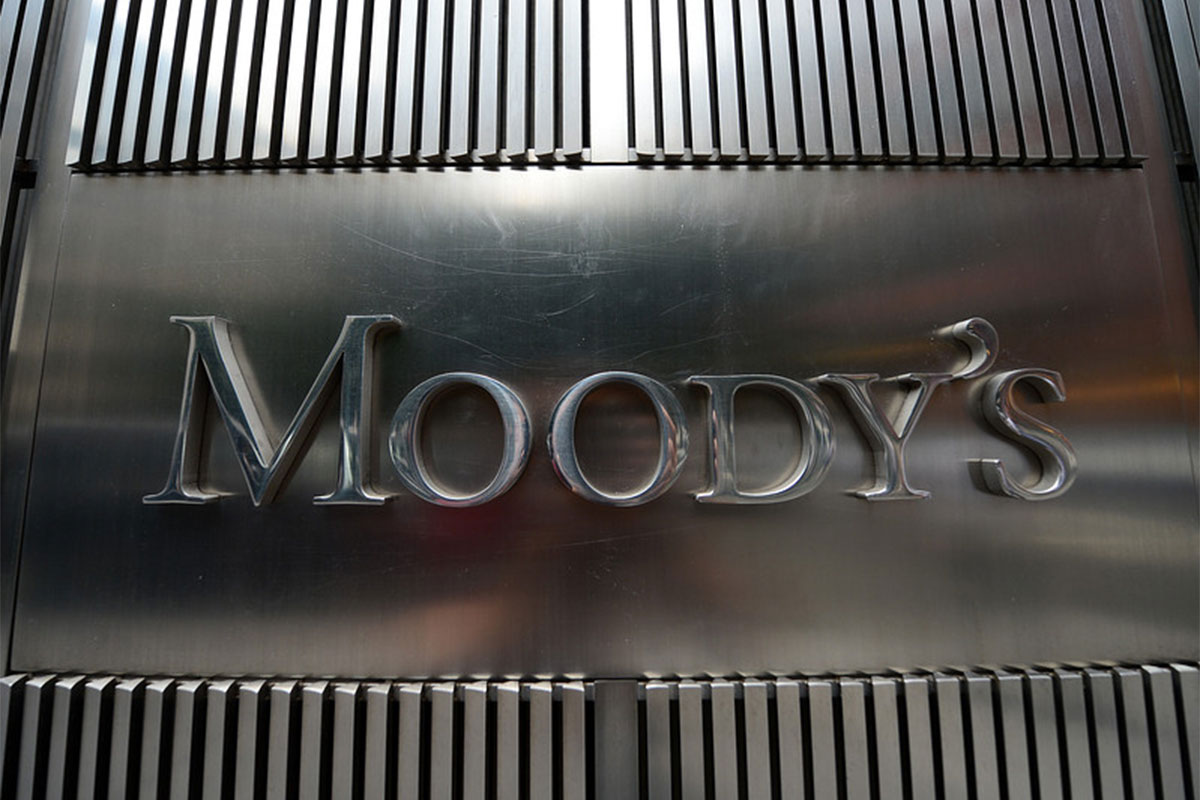India records 122 fresh COVID-19 cases
The total COVID-19 caseload of the country has risen to 4,50,26,261. These also include the JN.1 Covid variant cases.
Moody’s had, in November 2019, downgraded India’s outlook to negative from stable on concerns of lower economic growth.

Moody’s noted India’s credit profile will sink further due to the coronavirus pandemic. (Photo: AFP)
Moody’s Investors Service on Friday indicated an upgrade on India’s negative rating is unlikely in the near term because of weak policy implementation to address economic issues and higher level of debts.
The agency said, “the negative outlook reflects increasing risks that economic growth will remain significantly lower than in the past. This is in light of the deep shock triggered by the coronavirus outbreak, and partly reflects lower government and policy effectiveness at addressing long-standing economic and institutional weaknesses, leading to a gradual rise in the debt burden from already high levels.”
Moody’s had, in November 2019, downgraded India’s outlook to negative from stable on concerns of lower economic growth.
Advertisement
The agency, however, affirmed country’s ‘Baa2′ foreign-currency and local currency long-term issuer ratings for India. It is the second-lowest investment grade score.
Moody’s further said that India’s credit profile is supported by its large and diverse economy and stable domestic financing base.
“This is balanced against high government debt, weak social and physical infrastructure, and a fragile financial sector, which face further pressures amid the coronavirus outbreak,” Moody’s said in a credit opinion titled Government of India- Baa2 negative’.
The agency pointed out that the negative outlook reflects increasing risks that economic growth will remain significantly lower than in the past. “This is in light of the deep shock triggered by the coronavirus outbreak, and partly reflects lower government and policy effectiveness at addressing long-standing economic and institutional weaknesses, leading to a gradual rise in the debt burden from already high levels,” it noted.
Moody’s noted India’s credit profile will sink further due to the coronavirus pandemic.
“The shock from coronavirus pandemic will exacerbate an already material slowdown in economic growth, which has significantly reduced the prospects for durable fiscal consolidation,” it said.
“Government measures to support the economy should help to reduce the depth and duration of India’s growth slowdown. However, prolonged financial stress among rural households, weak job creation and, more recently, a credit crunch among non-bank financial institutions (NBFIs) have increased utility of a more entrenched weakening,” Moody’s said.
Moreover, prospects of further reforms to support business investment and growth at high levels, and significantly broaden the narrow tax base, have diminished.
“If nominal gross domestic product (GDP) growth does not return to high rates, we expect that the government will face very significant constraints in narrowing the general government budget deficit and preventing a rise in the debt burden,” it added.
Last month, Moody’s had slashed India’s growth forecast for calendar year 2020 to 0.2 per cent from 2.5 per cent projected in March.
Moody’s said fiscal deficit this year is set to widen materially due to sharp decline in growth and stimulus spending, and weaker government revenue.
On March 26, the government announced Rs 1.7 lakh crore (USD 22.3 billion, about 0.8 per cent of GDP) relief package targeting the most vulnerable segments of society.
Overall, the fiscal stimulus is modest compared with support packages implemented in many other countries, particularly given the breadth of India’s nationwide lockdown measures. We expect the government will announce additional measures in the future, Moody’s said.
The existing package targets medical workers and the most vulnerable segments of society, providing direct cash handouts and food to the poor, and supporting workers under the government’s employment guarantee scheme.
While the measures will help reduce some of the economic damage to households, the lockdown and ongoing stress in the financial system will cause a sharp decline in India’s overall growth, exacerbating fiscal pressures, it added.
Advertisement